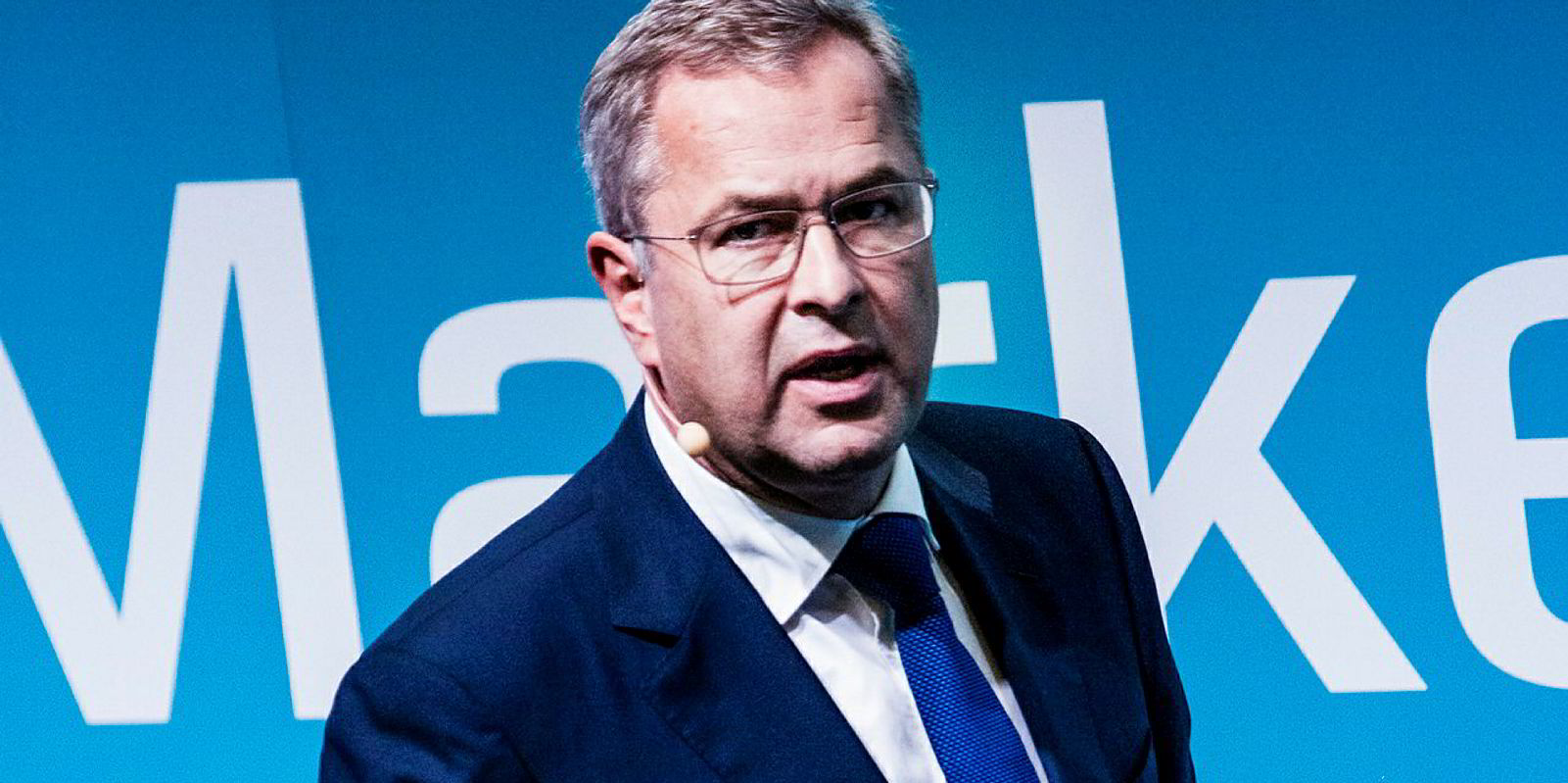AP Moller-Maersk has lifted its earnings forecast for the second quarter on the basis of better-than-expected container volumes for its containership operations.
The Danish liner giant said market demand in the second quarter is developing more favourably than originally expected, with Maersk’s volumes downfall now anticipated to be in the range of 15% to 18% for the period, compared to its initial guidance calling for a drop of 20% to 25%.
The group said it expects Ebitda before restructuring and integration costs for the quarter to be slightly above the level for the first three months of 2020 of $1.5bn.
But given uncertainty on demand recovery in the second half of the year as economies are still impacted by the Covid-19 pandemic, Maersk said full-year guidance on earnings remains suspended.
“Despite an expected 15% to 18% drop in demand due to Covid-19 during the second quarter, I am pleased that we expect to deliver operating earnings slightly above our operating earnings in the first quarter,” AP Moller-Maersk chief executive Soren Skou said.
“This also means we expect operating earnings to be higher than they were in the same quarter last year.”
Blanking sailings
Despite difficult conditions, Maersk has been able to adjust capacity to demand by blanking sailings to maintain high utilisation of its network and manage costs across the company, Skou said.
The group delivered year-on-year earnings growth in the first quarter despite 5% lower demand and sharply increasing fuel cost as a result of the IMO 2020 switch to low-sulphur fuel.
“While uncertainty persists because of the pandemic and low visibility on the recovery path, we benefit from a more resilient ocean business,” Skou said.
Fearnley Securities said the group's earnings are still very attractive in what remains a soft market.
"We emphasise that it is higher freight rates and lower bunker prices that drive these earnings," it added.
It estimates that second-quarter Ebitda would have been $600m to $700m on 15% lower volumes.
"These last few months has shown a highly resilient liner industry, coping with significant volume reductions," Fearnley Securities said.
"The analogy is obviously 2009 where volumes dropped circa 10%, freight rates 25% and Maersk operating margin to -9%. If this time is different, we can’t wait to see how a strong market would look earnings wise."
The investment bank is maintaining its "buy" rating.
Different now
Fearnley Securities believes the current market is different to 2009 because there is now a consolidated industry with three large alliances able to control capacity, as well as a greater focus on operating margins and not market share. The orderbook is also smaller.
Maersk will publish its second-quarter interim result on 19 August.
In May, Maersk reported a return to net profit in the first quarter, making $209m, compared with a loss of $656m a year ago, but said it would blank up to 140 sailings in the second quarter due to the coronavirus crisis.
The company warned at that time that a 25% slump in container volumes could cost it up to $1bn, but said the financial damage would be offset by much lower fuel prices and freight rates being held up by capacity cuts in the second period.





